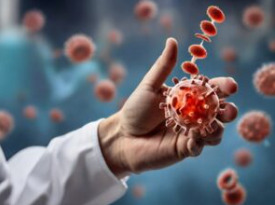#hello-american
Explore tagged Tumblr posts
Text

#american beauty#coquette#coquette aesthetic#coquette dollete#lana del ray aka lizzy grant#lana del rey#lana is our queen#vintage coquette#american lolita#female manipulator
11K notes
·
View notes
Text
covid test

Crucial Steps: A Guide to Understanding the COVID Test Process
In the ongoing battle against the global COVID-19 pandemic, testing remains a pivotal tool in identifying and mitigating the spread of the virus. Understanding the COVID test process is crucial for individuals seeking clarity on their health status and for society at large in controlling the transmission of the virus. The COVID test, short for coronavirus test, is a diagnostic examination designed to detect the presence of the SARS-CoV-2 virus, responsible for causing COVID-19. This testing process typically involves the collection of respiratory samples, such as nasopharyngeal swabs, throat swabs, or saliva samples. The collected specimens are then analyzed in specialized laboratories to determine whether the virus is present. One of the most common types of COVID tests is the PCR (polymerase chain reaction) test. This method amplifies genetic material from the virus, allowing for its detection with high sensitivity. PCR tests are known for their accuracy and reliability, making them a preferred choice in diagnosing active COVID-19 infections. The process involves inserting a swab into the back of the throat or the nose to collect a sample for analysis. Another widely used testing method is the rapid antigen test. This test detects specific proteins on the surface of the virus and provides results in a relatively short timeframe. While rapid antigen tests offer quicker results, they may be less sensitive than PCR tests, particularly in individuals with low viral loads. Understanding the COVID test process extends beyond sample collection. Timely and accurate result reporting is essential for effective public health measures. Individuals undergoing testing should be aware of the typical turnaround time for results, which can vary depending on the type of test and the testing facility. It is crucial to follow testing guidelines and any recommended quarantine measures while awaiting results. Testing plays a crucial role not only in diagnosing active infections but also in identifying individuals who may be carrying the virus without exhibiting symptoms. Asymptomatic carriers can unknowingly contribute to the spread of COVID-19, making widespread testing a key strategy in controlling outbreaks. In addition to diagnostic testing, there are also serological tests that detect antibodies produced in response to a previous infection. These tests can provide insights into past exposure to the virus but are not suitable for diagnosing active infections. Serological tests can be valuable in understanding the prevalence of the virus within a community and assessing the potential for herd immunity. In conclusion, comprehending the COVID test process is vital for individuals, communities, and public health systems. Regular and widespread testing contributes to the timely identification of cases, effective contact tracing, and the implementation of appropriate public health measures. By staying informed about the different types of tests available, their purposes, and the importance of result reporting, individuals can actively participate in the collective effort to curb the spread of COVID-19 and protect the well-being of society as a whole.
Navigating Health Safely: Everything You Need to Know About COVID Tests In the ongoing battle against the global COVID-19 pandemic, COVID tests have become an integral tool in understanding and managing the spread of the virus. As individuals and communities strive to navigate health safely, it is essential to be well-informed about the various aspects of COVID testing. A COVID test, or coronavirus test, is a diagnostic procedure aimed at identifying the presence of the SARS-CoV-2 virus, responsible for causing COVID-19. The significance of these tests lies in their ability to detect infections, whether symptomatic or asymptomatic, and to facilitate timely public health interventions. There are several types of COVID tests, each serving specific purposes. The Polymerase Chain Reaction (PCR) test is a widely used method that detects the genetic material of the virus. Known for its high accuracy, the PCR test is effective in diagnosing active infections and is often employed in healthcare settings and testing laboratories. Nasopharyngeal swabs or throat swabs are commonly used to collect samples for PCR testing. Rapid antigen tests are another category of COVID tests designed to provide quick results. These tests detect specific viral proteins and are valuable for immediate screening, especially in high-traffic settings. While rapid antigen tests offer prompt results, they may have lower sensitivity compared to PCR tests, particularly in individuals with lower viral loads. Understanding the COVID test process is crucial for individuals seeking testing. Sample collection methods vary, and individuals may undergo nasal swabs, throat swabs, or even provide saliva samples, depending on the type of test and testing facility. It is important to follow testing guidelines and any recommended quarantine measures while awaiting results. Testing is not limited to diagnosing active infections. Serological tests, also known as antibody tests, are conducted to detect antibodies produced in response to a past infection. These tests contribute to understanding the prevalence of the virus within a community and assessing potential immunity. Timely result reporting is a key component of the testing process. Individuals should be aware of the typical turnaround time for results, which can vary based on the type of test and testing facility. Adhering to recommended quarantine measures during the waiting period is essential for preventing further transmission. Regular and widespread testing is a cornerstone of public health strategies to control the spread of COVID-19. Testing facilitates early identification of cases, effective contact tracing, and the implementation of targeted interventions. By staying informed about the different types of tests available, their purposes, and the importance of result reporting, individuals can actively contribute to the collective effort to navigate health safely and curb the spread of COVID-19 in their communities.
What test should I get to see if I have COVID 19 Navigating Uncertainty: What Test Should I Get to Determine COVID-19 Status? In the current landscape of the ongoing COVID-19 pandemic, individuals find themselves facing uncertainties regarding the most suitable test to determine their COVID-19 status. The question echoes in the minds of many: What test should I get to see if I have COVID-19? Navigating through the array of testing options requires a comprehensive understanding of the available tests and their distinct characteristics. One of the primary tests employed to diagnose active COVID-19 infections is the Polymerase Chain Reaction (PCR) test. This molecular diagnostic test detects the genetic material of the SARS-CoV-2 virus and is renowned for its high accuracy. If you are seeking confirmation of a current infection, the PCR test is a reliable choice. It typically involves the collection of nasopharyngeal or throat swab samples, and the results are obtained through laboratory analysis. For those who prioritize swift results, the rapid antigen test offers a quicker turnaround time compared to the PCR test. Rapid antigen tests detect specific proteins on the surface of the virus and are suitable for immediate screening. However, it is essential to note that these tests may have lower sensitivity, particularly in individuals with lower viral loads. If time is of the essence and you need quick results, the rapid antigen test may be a suitable option. Navigating uncertainty also involves considering serological tests, commonly known as antibody tests. These tests do not diagnose active infections but rather detect the presence of antibodies produced in response to a past infection. If you are curious about whether you have been previously exposed to the virus and developed an immune response, an antibody test may provide valuable insights. Choosing the right test depends on various factors, including the presence of symptoms, the urgency of results, and the purpose of testing. If you are experiencing symptoms associated with COVID-19, such as fever, cough, or shortness of breath, a PCR test is recommended for accurate diagnosis. On the other hand, if you require rapid results for immediate decision-making, a rapid antigen test may be more suitable. It is crucial to adhere to testing guidelines and follow any recommendations from healthcare professionals or testing facilities. Timely result reporting is vital not only for personal decision-making but also for contributing to public health efforts in controlling the spread of the virus. Individuals should be aware of the typical turnaround time for results based on the chosen test. In conclusion, navigating uncertainty about COVID-19 status involves making informed decisions about the type of test to undergo. Whether opting for the precision of a PCR test, the speed of a rapid antigen test, or the insights from an antibody test, individuals play a crucial role in the collective effort to curb the spread of the virus. By understanding the nuances of each test and considering individual circumstances, individuals can make informed choices to safeguard their health and contribute to the broader public health goals.
Choosing Wisely: A Guide to Selecting the Right Test for COVID-19 Detection In the ongoing battle against the global COVID-19 pandemic, the importance of selecting the right test for accurate detection cannot be overstated. Individuals are often confronted with the question: What test should I get to see if I have COVID-19? Navigating through the myriad of testing options requires careful consideration and an understanding of the distinct features of each test. One of the primary tests recommended for COVID-19 detection is the Polymerase Chain Reaction (PCR) test. Renowned for its high accuracy, the PCR test detects the genetic material of the SARS-CoV-2 virus, providing a reliable diagnosis of active infections. Typically, nasopharyngeal or throat swab samples are collected, and the results are obtained through thorough laboratory analysis. If precision in diagnosis is a priority, the PCR test is a prudent choice. For those seeking rapid results, the rapid antigen test emerges as an alternative. This test detects specific viral proteins and offers quicker turnaround times compared to the PCR test. However, it is essential to note that the rapid antigen test may have lower sensitivity, particularly in individuals with lower viral loads. If immediate results are crucial for decision-making, the rapid antigen test may be a suitable option. Adding another dimension to the testing landscape are serological tests, commonly known as antibody tests. Unlike diagnostic tests, antibody tests do not identify active infections but instead detect the presence of antibodies developed in response to a past infection. If the goal is to understand past exposure and potential immunity, an antibody test may provide valuable insights. Choosing the right test depends on various factors, including symptoms, the urgency of results, and the purpose of testing. If an individual is symptomatic with signs of COVID-19, such as fever, cough, or shortness of breath, opting for a PCR test is advisable to ensure accurate diagnosis. Conversely, if rapid results are needed for immediate decision-making, the rapid antigen test may be more suitable. Adhering to testing guidelines and following recommendations from healthcare professionals or testing facilities is crucial. Additionally, being aware of the typical turnaround time for results based on the chosen test is essential for planning and taking appropriate actions while awaiting results. In conclusion, the process of choosing the right test for COVID-19 detection involves a thoughtful evaluation of individual circumstances and testing priorities. Whether prioritizing accuracy with a PCR test, speed with a rapid antigen test, or insights into past exposure with an antibody test, individuals play a crucial role in the collective effort to curb the spread of the virus. By making informed decisions about testing options, individuals contribute not only to their personal well-being but also to the broader public health goals aimed at controlling and mitigating the impact of the COVID-19 pandemic.
Hello american hello american - Your Magazine: Famous News, Lifestyle, Health, Technology, Career & fun etc News: "Welcome to Hello American's News Hub, where stories unfold and perspectives converge. Stay informed with our diverse coverage of national and global events, providing in-depth analyses, breaking news, and thought-provoking insights that shape our world."
Health: "Hello American Health: Your Wellness Compass. Discover a wealth of health resources, expert advice, and articles dedicated to promoting holistic well-being. From fitness trends to mental health guides, we're committed to empowering you on your journey to a healthier life."
Lifestyle: "Experience the Vibrant hello american Lifestyle. Delve into our curated collection celebrating the rich tapestry of American living. Explore travel destinations, culinary delights, fashion trends, and more, embracing the diverse threads that weave the fabric of our culture."
Technology: "Hello American Tech: Navigating Tomorrow's Innovations. Explore the forefront of technology with us. From gadget reviews to AI breakthroughs, our tech section unveils the latest trends, helping you stay connected and empowered in an ever-evolving digital landscape."
Career: "Hello American Careers: Empowering Your Professional Odyssey. Embark on a journey of growth and opportunities. Access career insights, job openings, mentorship programs, and skill development resources, designed to fuel your aspirations and drive your career forward."
Education: "Education Redefined at Hello American. Embrace learning as an ongoing adventure. Dive into our educational hub, where traditional knowledge meets innovative approaches. Explore diverse learning paths, online courses, and resources designed to inspire lifelong curiosity and growth."
Each section offers a tailored experience, catering to the diverse interests and needs of the Hello American audience, while aiming to provide valuable information and resources in these respective domains.
0 notes
Text
Hello American - Your Magazine: Famous News, Lifestyle, Health, Technology, Career & fun etc

News:
"Welcome to Hello American's News Hub, where stories unfold and perspectives converge. Stay informed with our diverse coverage of national and global events, providing in-depth analyses, breaking news, and thought-provoking insights that shape our world."
Health:
"Hello American Health: Your Wellness Compass. Discover a wealth of health resources, expert advice, and articles dedicated to promoting holistic well-being. From fitness trends to mental health guides, we're committed to empowering you on your journey to a healthier life."
Lifestyle:
"Experience the Vibrant Hello American Lifestyle. Delve into our curated collection celebrating the rich tapestry of American living. Explore travel destinations, culinary delights, fashion trends, and more, embracing the diverse threads that weave the fabric of our culture."
Technology:
"Hello American Tech: Navigating Tomorrow's Innovations. Explore the forefront of technology with us. From gadget reviews to AI breakthroughs, our tech section unveils the latest trends, helping you stay connected and empowered in an ever-evolving digital landscape."
Career:
"Hello American Careers: Empowering Your Professional Odyssey. Embark on a journey of growth and opportunities. Access career insights, job openings, mentorship programs, and skill development resources, designed to fuel your aspirations and drive your career forward."
Education:
"Education Redefined at Hello American. Embrace learning as an ongoing adventure. Dive into our educational hub, where traditional knowledge meets innovative approaches. Explore diverse learning paths, online courses, and resources designed to inspire lifelong curiosity and growth."
Each section offers a tailored experience, catering to the diverse interests and needs of the Hello American audience, while aiming to provide valuable information and resources in these respective domains.
1 note
·
View note
Text






HAYDEN CHRISTENSEN as JAMES KELLY — American Heist (2014) dir. Sarik Andreasyan
#hayden christensen#hchristensenedit#haydenchristensenedit#gif#filmedit#filmgifs#fyeahmovies#swsource#dilfgifs#dailyflicks#chewieblog#userlace#usersavana#tusermelissa#userpayton#userjasmine#usershale#tusererika#userchristineb#usernik#usersansa#clonecaptains#underbetelgeuse#usertyger#dailyanakin#american heist#hello again; this account has been on a crisis of anxiety and this is my therapy soooo#also i missed giffing james kelly content ahh
756 notes
·
View notes
Text









BRANDON URANOWITZ as LEON CZOLGOSZ ASSASSINS | OFF-BROADWAY [2022]
#assassins#assassins musical#brandon uranowitz#leon czolgosz#stephen sondheim#musicaledit#theatreedit#musicaltheatreedit#hello americans........#also hello ethan slater in the bg lol
415 notes
·
View notes
Text

#the tumblr way of receiving news#i am not american#i just find it hilarious that this is how i receive news nowadays#also hello?! wtf is going on!?#donald trump#destiel#spn#supernatural#destiel meme
869 notes
·
View notes
Text

Super Bowl Sunday! Who are you rooting for?
#hello kitty#mimmy white#sanrio#pink#pastel#cute#kawaii#super bowl#football#american football#kansas city chiefs#philadelphia eagles
196 notes
·
View notes
Text
yk I always forget that Neil Gaiman is on tumblr so I'll see one of his posts and just go holy fuck
I wanna ask him so many questions but I'm too nervous. If he sees this Mr. Gaiman I love your works they are very inspiring and you are an amazing author and I love so many of your books
Have a nice day Mr. Gaiman
1K notes
·
View notes
Text










10 Overlooked 1980s Horror Movies To Consider For October/Halloween
#Horror#Filmedit#Horroredit#American Gothic#City Of The Living Dead#The Funhouse#Ghost Story#Girls Nite Out#Hello Mary Lou Prom Night 2#Road Games#Terrorvision#Warlock#Waxwork#CHB#1980s#80s
1K notes
·
View notes
Note
Bestie I’m thinkin bout waking Tate up with some real sloppy head and then not stopping after he cums the first time so he’s sobbing and whimpering and he just keeps cumming until he’s begging you to stop
mature content ; MDNI

waking TATE LANGDON up with your mouth on him was a decision you’d made the second you felt him shift in his sleep. he looked so pretty and peaceful lying there, blond curls messy and cheeks flushed, plump lips slightly parted as quiet breaths passed between them. but the moment your tongue flicked over his tip, his body tensed, a strained groan escaping him as his eyes fluttered open.
“w-wha…” his voice cracked, still heavy with sleep, as his bleary eyes found you under the covers. you didn’t stop to answer, lips sliding lower as you took more of him into your mouth. your hand worked in tandem with your tongue, swirling and stroking in slow movements, savoring the way his breathing hitched with every little shift of your mouth.“oh, fuck,” he whimpered, hips twitching upward involuntarily. his hands scrambled to grip the sheets, knuckles white as he fought the urge to bury them in your hair. “please—ah, feels so good…”
his head fell back against the pillow, chest rising and falling in quick, uneven breaths as you set a steady rhythm, the wet sounds of your mouth on him filling the room. you could feel the way he was already trembling, his body hypersensitive from the way you dragged your lips along every inch, tongue teasing at the veins along his length.
“please—” his voice cracked again, higher this time, pleasure and desperation mingled together. “i’m gonna—oh god, i’m gonna—” his thighs shook as he came, a broken sob tearing from his throat as his release hit him hard, spilling hot and salty on your tongue. but you didn’t stop—not when his body jolted, not when he whimpered and tried to pull away, his hips squirming restlessly.
“n-no, wait,” he gasped, voice trembling as tears pricked at the corners of his eyes. his fingers clawed at the sheets, his head thrashing against the pillow. “too much—i can’t—oh, fuck, please—” you hummed around him, the vibration making him cry out, his body arching off the mattress as another choked sob left his lips. his thighs quivered uncontrollably, and tears slid down his flushed cheeks as you pushed him further, your lips and tongue relentless.
“p-please,” he begged, his voice breaking completely. his hands finally found your hair. “i can’t—oh god, i can’t—” but his body betrayed him, another shaky moan spilling from his lips as his hips bucked into your mouth again, the overstimulation dragging him to the brink all over again. he sobbed your name, trembling and helpless beneath you, completely undone.
#what happened to “hello”#american horror story#ahs#evan peters#tate langdon#tate langdon smut#tate langdon imagine#tate langdon x reader#tate langdon x y/n#ahs murder house#ahs season one#evan peters smut
180 notes
·
View notes
Text

Opened twitter for the first time in like six months and this almost made me weep
(Here is the original post, no one posted it here from what I can tell and I needed all y’all to see this)
#dan and phil#phan#I love how some of them are dumb shit they’d absolutely make fun of us for#like iirc I’ll find you in any world phil was from their Fortnite video#also hello American with election related insomnia here I will be posting at odd hours for the foreseeable future
214 notes
·
View notes
Text

#american beauty#coquette#coquette aesthetic#coquette dollete#lana del ray aka lizzy grant#lana del rey#lana is our queen#vintage coquette#american lolita#female manipulator#lana del ray icons#spotify#patrick bateman#priscilla movie#black swan#hello kitty#lana del ray song#manic pixie dream girl#megan fox#salvatore
3K notes
·
View notes
Text
covid test
Crucial Steps: A Guide to Understanding the COVID Test Process

In the ongoing battle against the global COVID-19 pandemic, testing remains a pivotal tool in identifying and mitigating the spread of the virus. Understanding the COVID test process is crucial for individuals seeking clarity on their health status and for society at large in controlling the transmission of the virus.
The COVID test, short for coronavirus test, is a diagnostic examination designed to detect the presence of the SARS-CoV-2 virus, responsible for causing COVID-19. This testing process typically involves the collection of respiratory samples, such as nasopharyngeal swabs, throat swabs, or saliva samples. The collected specimens are then analyzed in specialized laboratories to determine whether the virus is present.
One of the most common types of COVID tests is the PCR (polymerase chain reaction) test. This method amplifies genetic material from the virus, allowing for its detection with high sensitivity. PCR tests are known for their accuracy and reliability, making them a preferred choice in diagnosing active COVID-19 infections. The process involves inserting a swab into the back of the throat or the nose to collect a sample for analysis.
Another widely used testing method is the rapid antigen test. This test detects specific proteins on the surface of the virus and provides results in a relatively short timeframe. While rapid antigen tests offer quicker results, they may be less sensitive than PCR tests, particularly in individuals with low viral loads.
Understanding the COVID test process extends beyond sample collection. Timely and accurate result reporting is essential for effective public health measures. Individuals undergoing testing should be aware of the typical turnaround time for results, which can vary depending on the type of test and the testing facility. It is crucial to follow testing guidelines and any recommended quarantine measures while awaiting results.
Testing plays a crucial role not only in diagnosing active infections but also in identifying individuals who may be carrying the virus without exhibiting symptoms. Asymptomatic carriers can unknowingly contribute to the spread of COVID-19, making widespread testing a key strategy in controlling outbreaks.
In addition to diagnostic testing, there are also serological tests that detect antibodies produced in response to a previous infection. These tests can provide insights into past exposure to the virus but are not suitable for diagnosing active infections. Serological tests can be valuable in understanding the prevalence of the virus within a community and assessing the potential for herd immunity.
In conclusion, comprehending the COVID test process is vital for individuals, communities, and public health systems. Regular and widespread testing contributes to the timely identification of cases, effective contact tracing, and the implementation of appropriate public health measures. By staying informed about the different types of tests available, their purposes, and the importance of result reporting, individuals can actively participate in the collective effort to curb the spread of COVID-19 and protect the well-being of society as a whole.
Navigating Health Safely: Everything You Need to Know About COVID Tests
In the ongoing battle against the global COVID-19 pandemic, COVID tests have become an integral tool in understanding and managing the spread of the virus. As individuals and communities strive to navigate health safely, it is essential to be well-informed about the various aspects of COVID testing.
A COVID test, or coronavirus test, is a diagnostic procedure aimed at identifying the presence of the SARS-CoV-2 virus, responsible for causing COVID-19. The significance of these tests lies in their ability to detect infections, whether symptomatic or asymptomatic, and to facilitate timely public health interventions.
There are several types of COVID tests, each serving specific purposes. The Polymerase Chain Reaction (PCR) test is a widely used method that detects the genetic material of the virus. Known for its high accuracy, the PCR test is effective in diagnosing active infections and is often employed in healthcare settings and testing laboratories. Nasopharyngeal swabs or throat swabs are commonly used to collect samples for PCR testing.
Rapid antigen tests are another category of COVID tests designed to provide quick results. These tests detect specific viral proteins and are valuable for immediate screening, especially in high-traffic settings. While rapid antigen tests offer prompt results, they may have lower sensitivity compared to PCR tests, particularly in individuals with lower viral loads.
Understanding the COVID test process is crucial for individuals seeking testing. Sample collection methods vary, and individuals may undergo nasal swabs, throat swabs, or even provide saliva samples, depending on the type of test and testing facility. It is important to follow testing guidelines and any recommended quarantine measures while awaiting results.
Testing is not limited to diagnosing active infections. Serological tests, also known as antibody tests, are conducted to detect antibodies produced in response to a past infection. These tests contribute to understanding the prevalence of the virus within a community and assessing potential immunity.
Timely result reporting is a key component of the testing process. Individuals should be aware of the typical turnaround time for results, which can vary based on the type of test and testing facility. Adhering to recommended quarantine measures during the waiting period is essential for preventing further transmission.
Regular and widespread testing is a cornerstone of public health strategies to control the spread of COVID-19. Testing facilitates early identification of cases, effective contact tracing, and the implementation of targeted interventions. By staying informed about the different types of tests available, their purposes, and the importance of result reporting, individuals can actively contribute to the collective effort to navigate health safely and curb the spread of COVID-19 in their communities.
What test should I get to see if I have COVID 19
Navigating Uncertainty: What Test Should I Get to Determine COVID-19 Status?
In the current landscape of the ongoing COVID-19 pandemic, individuals find themselves facing uncertainties regarding the most suitable test to determine their COVID-19 status. The question echoes in the minds of many: What test should I get to see if I have COVID-19? Navigating through the array of testing options requires a comprehensive understanding of the available tests and their distinct characteristics.
One of the primary tests employed to diagnose active COVID-19 infections is the Polymerase Chain Reaction (PCR) test. This molecular diagnostic test detects the genetic material of the SARS-CoV-2 virus and is renowned for its high accuracy. If you are seeking confirmation of a current infection, the PCR test is a reliable choice. It typically involves the collection of nasopharyngeal or throat swab samples, and the results are obtained through laboratory analysis.
For those who prioritize swift results, the rapid antigen test offers a quicker turnaround time compared to the PCR test. Rapid antigen tests detect specific proteins on the surface of the virus and are suitable for immediate screening. However, it is essential to note that these tests may have lower sensitivity, particularly in individuals with lower viral loads. If time is of the essence and you need quick results, the rapid antigen test may be a suitable option.
Navigating uncertainty also involves considering serological tests, commonly known as antibody tests. These tests do not diagnose active infections but rather detect the presence of antibodies produced in response to a past infection. If you are curious about whether you have been previously exposed to the virus and developed an immune response, an antibody test may provide valuable insights.
Choosing the right test depends on various factors, including the presence of symptoms, the urgency of results, and the purpose of testing. If you are experiencing symptoms associated with COVID-19, such as fever, cough, or shortness of breath, a PCR test is recommended for accurate diagnosis. On the other hand, if you require rapid results for immediate decision-making, a rapid antigen test may be more suitable.
It is crucial to adhere to testing guidelines and follow any recommendations from healthcare professionals or testing facilities. Timely result reporting is vital not only for personal decision-making but also for contributing to public health efforts in controlling the spread of the virus. Individuals should be aware of the typical turnaround time for results based on the chosen test.
In conclusion, navigating uncertainty about COVID-19 status involves making informed decisions about the type of test to undergo. Whether opting for the precision of a PCR test, the speed of a rapid antigen test, or the insights from an antibody test, individuals play a crucial role in the collective effort to curb the spread of the virus. By understanding the nuances of each test and considering individual circumstances, individuals can make informed choices to safeguard their health and contribute to the broader public health goals.
Choosing Wisely: A Guide to Selecting the Right Test for COVID-19 Detection
In the ongoing battle against the global COVID-19 pandemic, the importance of selecting the right test for accurate detection cannot be overstated. Individuals are often confronted with the question: What test should I get to see if I have COVID-19? Navigating through the myriad of testing options requires careful consideration and an understanding of the distinct features of each test.
One of the primary tests recommended for COVID-19 detection is the Polymerase Chain Reaction (PCR) test. Renowned for its high accuracy, the PCR test detects the genetic material of the SARS-CoV-2 virus, providing a reliable diagnosis of active infections. Typically, nasopharyngeal or throat swab samples are collected, and the results are obtained through thorough laboratory analysis. If precision in diagnosis is a priority, the PCR test is a prudent choice.
For those seeking rapid results, the rapid antigen test emerges as an alternative. This test detects specific viral proteins and offers quicker turnaround times compared to the PCR test. However, it is essential to note that the rapid antigen test may have lower sensitivity, particularly in individuals with lower viral loads. If immediate results are crucial for decision-making, the rapid antigen test may be a suitable option.
Adding another dimension to the testing landscape are serological tests, commonly known as antibody tests. Unlike diagnostic tests, antibody tests do not identify active infections but instead detect the presence of antibodies developed in response to a past infection. If the goal is to understand past exposure and potential immunity, an antibody test may provide valuable insights.
Choosing the right test depends on various factors, including symptoms, the urgency of results, and the purpose of testing. If an individual is symptomatic with signs of COVID-19, such as fever, cough, or shortness of breath, opting for a PCR test is advisable to ensure accurate diagnosis. Conversely, if rapid results are needed for immediate decision-making, the rapid antigen test may be more suitable.
Adhering to testing guidelines and following recommendations from healthcare professionals or testing facilities is crucial. Additionally, being aware of the typical turnaround time for results based on the chosen test is essential for planning and taking appropriate actions while awaiting results.
In conclusion, the process of choosing the right test for COVID-19 detection involves a thoughtful evaluation of individual circumstances and testing priorities. Whether prioritizing accuracy with a PCR test, speed with a rapid antigen test, or insights into past exposure with an antibody test, individuals play a crucial role in the collective effort to curb the spread of the virus. By making informed decisions about testing options, individuals contribute not only to their personal well-being but also to the broader public health goals aimed at controlling and mitigating the impact of the COVID-19 pandemic.
Hello american
hello american - Your Magazine: Famous News, Lifestyle, Health, Technology, Career & fun etc
News:
"Welcome to Hello American's News Hub, where stories unfold and perspectives converge. Stay informed with our diverse coverage of national and global events, providing in-depth analyses, breaking news, and thought-provoking insights that shape our world."
Health:
"Hello American Health: Your Wellness Compass. Discover a wealth of health resources, expert advice, and articles dedicated to promoting holistic well-being. From fitness trends to mental health guides, we're committed to empowering you on your journey to a healthier life."
Lifestyle:
"Experience the Vibrant hello american Lifestyle. Delve into our curated collection celebrating the rich tapestry of American living. Explore travel destinations, culinary delights, fashion trends, and more, embracing the diverse threads that weave the fabric of our culture."
Technology:
"Hello American Tech: Navigating Tomorrow's Innovations. Explore the forefront of technology with us. From gadget reviews to AI breakthroughs, our tech section unveils the latest trends, helping you stay connected and empowered in an ever-evolving digital landscape."
Career:
"Hello American Careers: Empowering Your Professional Odyssey. Embark on a journey of growth and opportunities. Access career insights, job openings, mentorship programs, and skill development resources, designed to fuel your aspirations and drive your career forward."
Education:
"Education Redefined at Hello American. Embrace learning as an ongoing adventure. Dive into our educational hub, where traditional knowledge meets innovative approaches. Explore diverse learning paths, online courses, and resources designed to inspire lifelong curiosity and growth."
Each section offers a tailored experience, catering to the diverse interests and needs of the Hello American audience, while aiming to provide valuable information and resources in these respective domains.
0 notes
Text









#amrev#amrev fandom#jeffmads#james madison#thomas jefferson#hamilton musical#lets tag the hamilton fandom too sure#hello why are they so stupid#artists on tumblr#okay its been 2 hours why isn't anyone liking my shit#do i have to tag more stuff#im tagging more stuff#amrev fanart#james madison x thomas jefferson#hamilton fanart#hamilton fandom#american revolution#i want moots#PLEASE#I love them i want more amrev moots wtf#historical jeffmads
235 notes
·
View notes
Text

the entire leslye headland collider interview is a hot mess but this exchange especially is driving out of my mind. in what galaxy are these people living?? in any other work, someone forgiving you even as you kill them would be the ultimate expression of compassion and unconditional love. that is so, so good! it's delicious and heart-wrenching, i love it!
but to these people, it's... taking away the killer's agency?? what??? so now luke skywalker throwing away his lightsaber and telling darth vader that he won't fight him in return of the jedi (1983) is taking away vader's agency? adding insult to injury? and not, i don't know, the other third guy in the shadows making them fight in the first place?
also, IN WHAT UNIVERSE ARE KILLS SUPPOSED TO BE SATISFACTORY. THIS ISN'T A VIDEO GAME!!!
#midtalks#the other stuff is like oh so shes just super white american and allo (derogatory) but like#i wouldve thought this of all things would be an ideal that transcends cultural barriers but hELLO???#star wars#the acolyte#the acolyte critical#leslye headland critical
266 notes
·
View notes
Text

Another entry in the saga of Soldier being a very smort boi.
#tf2#team fortess 2#meme redraw#incorrect quotes#soldier#tf2 soldier#sniper#tf2 sniper#blu crew#snakewater snake#snipersoldier#american aviators#if you want#petition to change their ship name cause it sucks#eagle eye#boot camp#idk which is better#hello if you read all these btw#i <3 you
281 notes
·
View notes